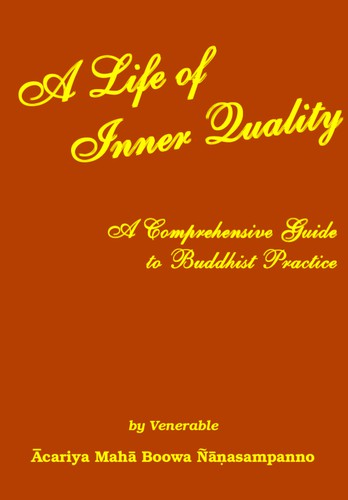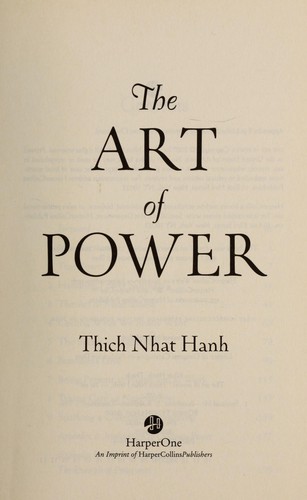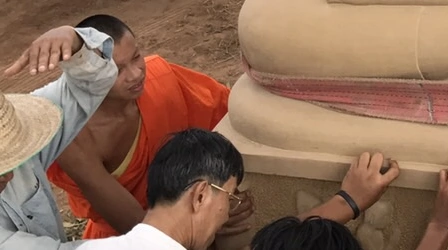Lay Buddhism
Subscribe to this topic via: RSS
The form of Buddhism practiced by householders.

A laywoman meditates on a wooden deck overlooking a pond in central Thailand in 2017. (Photo by Kosal Ley)
Table of Contents
Books (14)
Featured:
-
🥇 Best of
-
Meditation may seem disappointing and even almost useless for quite a long time, but if you persevere in it, results are bound to come. But these results may not be at all the sort of thing you expect. And you may not even be the person who first becomes aware of them. So press on regardless, and don’t look for results. If you can see the point of this piece of advice you have already in fact made useful progress.
-
This essay will help the Buddhist lay follower to understand, from a practical angle, the main points of the Buddha’s teachings as they bear on the conduct of daily life. Constant practice of these principles will ensure that they are built into his character, enabling him to develop into a well-rounded human being, a centre of sanity in a confused world adrift in fashionable philosophies full of empty promises.
-
Four important suttas on ethics. The translations in this booklet are a bit dated, but not bad.
-
103 pages[recommended but under copyright]
See also:
Canonical Works (37)
Featured:
-
The Noble Disciple, householder, with the wealth he has attained through industry and effort, accumulated through the strength of his arms, through the sweat of his brow, righteously, in accordance with the Dhamma, performs four suitable deeds.
-
The lay life is like farming in that it’s work with many requirements and when it fails it’s not very fruitful; but when it succeeds it is very fruitful.
-
The Buddha encouages lay disciples to practice the five precepts and frequently recollect their purity.
-
A man remembering this, a person established in Nobility,
Is praised right here and now, and later rejoices in heaven. -
They make themselves happy and pleased. This is the second ground for praise.
-
The Buddha explains “The Golden Rule” to a group of Brahmin householders.
-
Accomplishment in initiative, protection, good friendship, and balanced finances.
-
The blind person, the one-eyed person, and the two-eyed person.
-
In what way, Bhante, is one a lay follower?
-
I had unshakable faith in the Triple Gem. I practiced the precepts and delighted in giving and sharing.
-
Five kinds of trade that are wrong livelihood for lay people.
-
Mendicants, there are these five drawbacks for a family who takes their meals late in the day.
-
Having flown across the sky,
the birds resort to this delightful base -
A good person benefits eight kinds of people, like a rain-cloud showering all over the land.
-
Householder, there are these four kinds of happiness that may be achieved by a layperson
See also:
Readings (19)
Featured:
-
The assumption of a rigid division between monastics as recipients of liberating teachings and laity instructed in the gaining of merit and the way to a good rebirth does not accurately reflect early Buddhist thought.
-
Sir Edward Dyer rejoices in his virtue.
-
A short list of moral qualities that every Buddhist should strive to uphold.
See also:
Audio/Video (13)
Featured:
See also:



